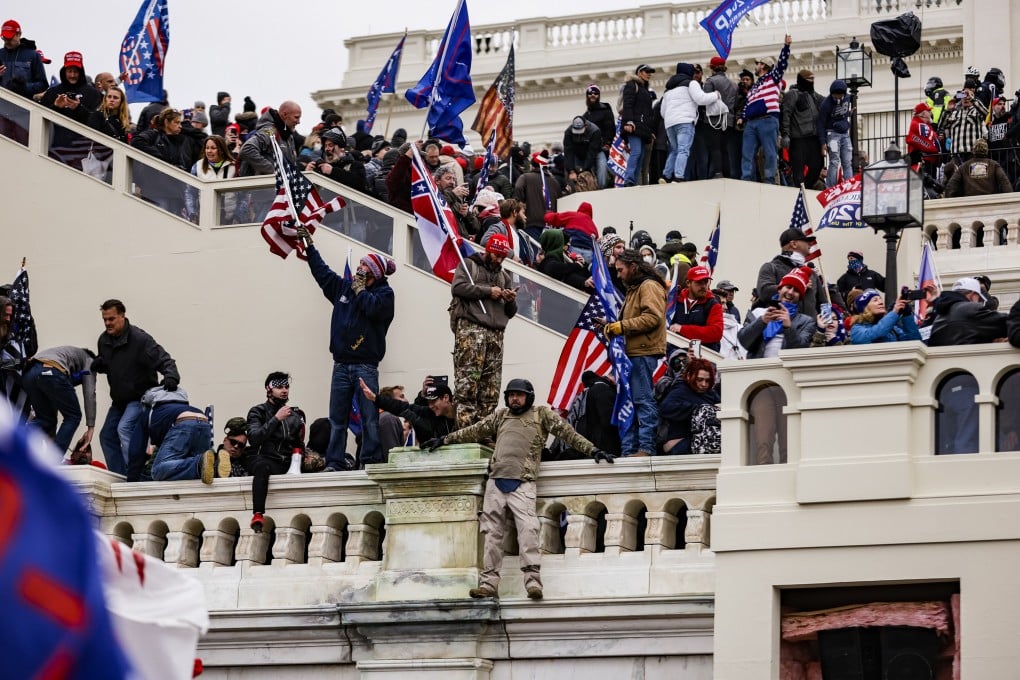Opinion | US Capitol attack was the beginning, not the apogee, of dark days for American democracy
- The attack on the US Capitol on January 6 did not unite the nation
- Instead, the protagonists involved have doubled down on their falsehoods, further creating tension and ushering in an era in which political violence is seen as a viable last resort

“I hope you’re all Republicans,” Ronald Reagan joked as he was wheeled into an operating theatre after the attempt on his life in 1981. “Today, we’re all Republicans,” a doctor replied.
Moments like these, of a nation coming together in times of crisis, are a thing of the past in America.
Instead, the protagonists involved have doubled down on their falsehoods, further creating tension and ushering in an era in which political violence will inevitably become an ultima ratio for those who believe their country is under attack.
Norms weakened by politicians such as Pat Buchanan, Newt Gingrich and Sarah Palin were shattered by the Trump presidency. Once the US president was able to speak of Mexicans as “drug dealers” and “rapists” and refer to political opponents as enemies and traitors with impunity, all bets were off.
.jpeg?itok=HjPEnbzk&v=1747124063)